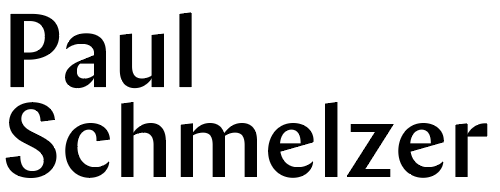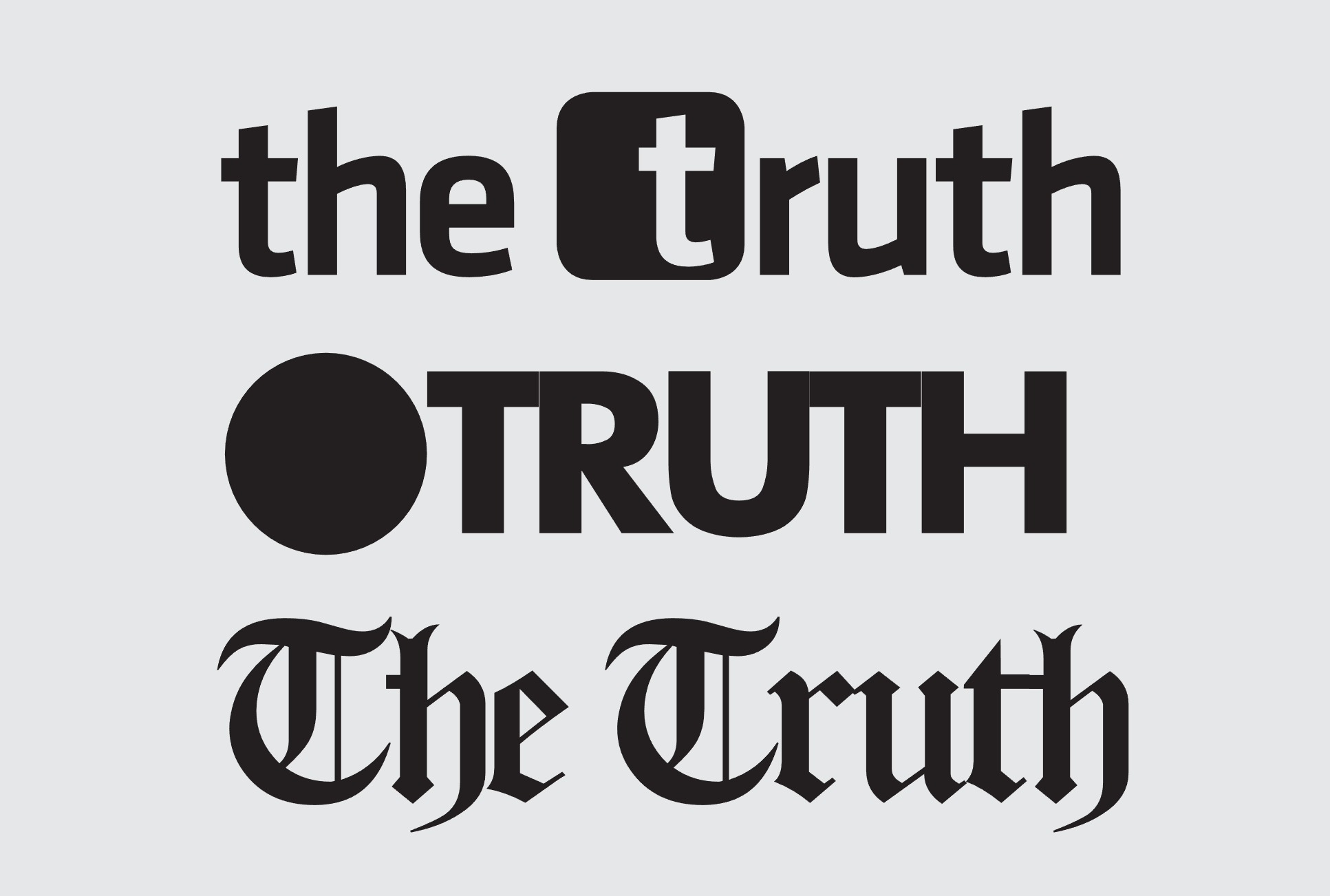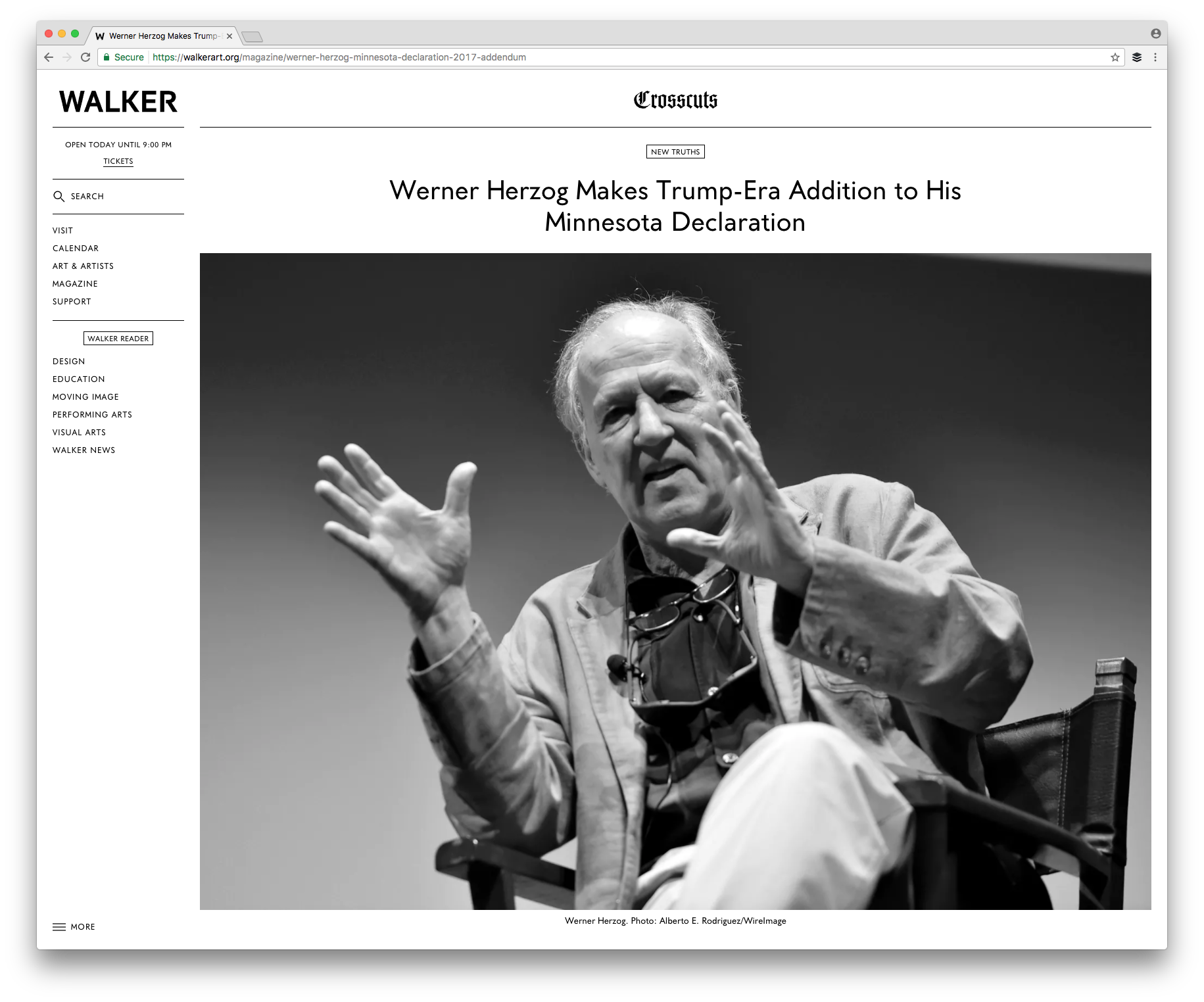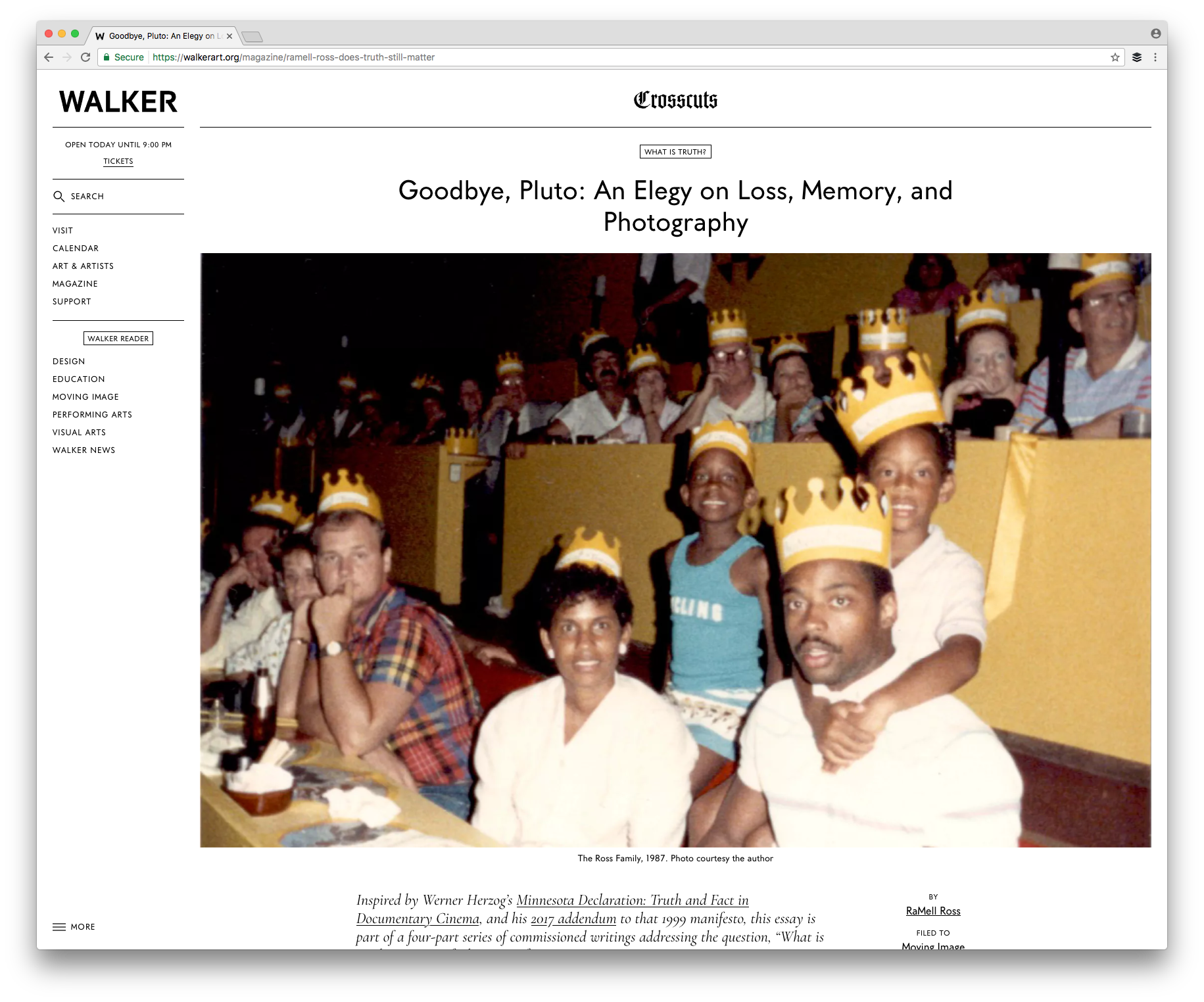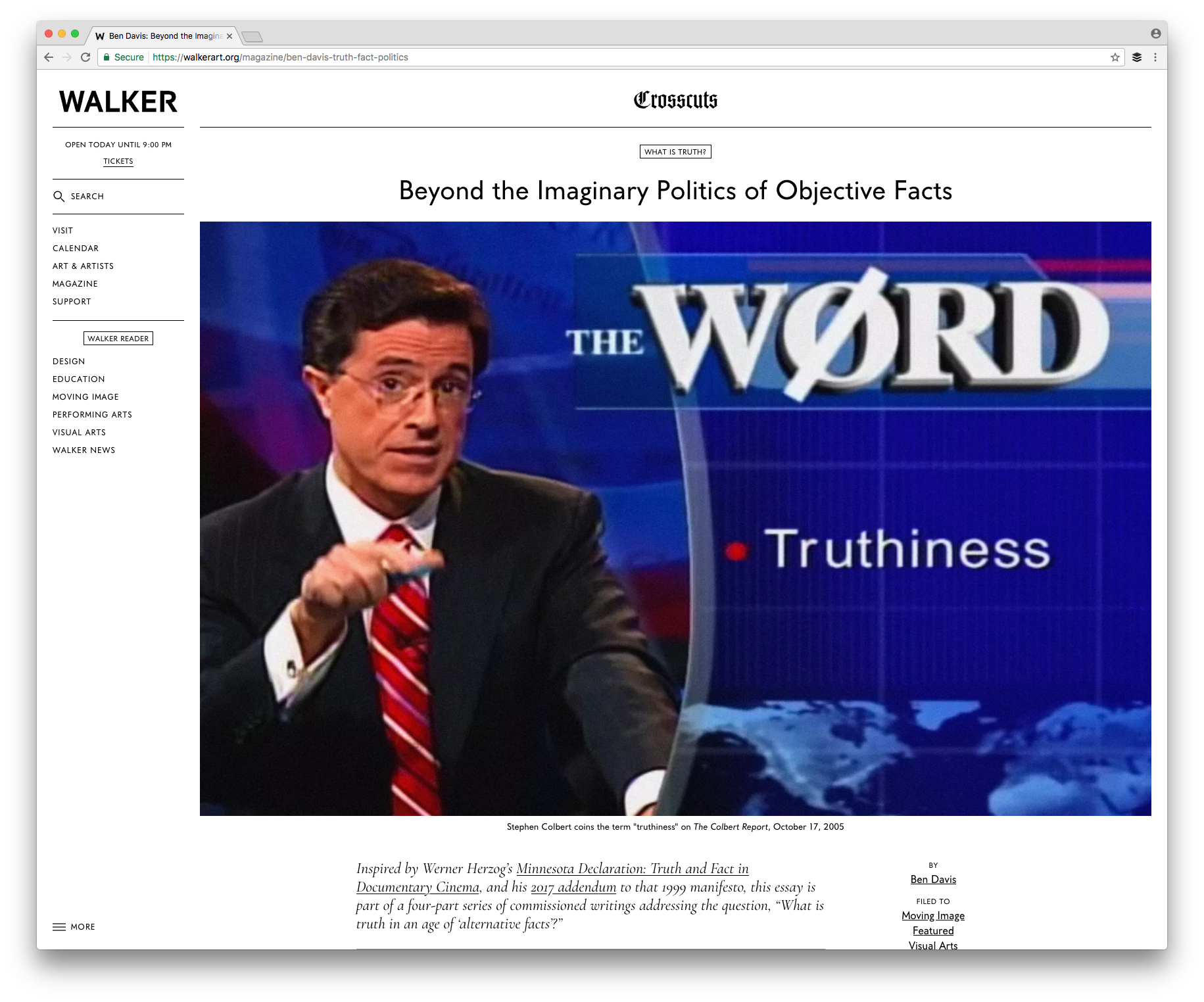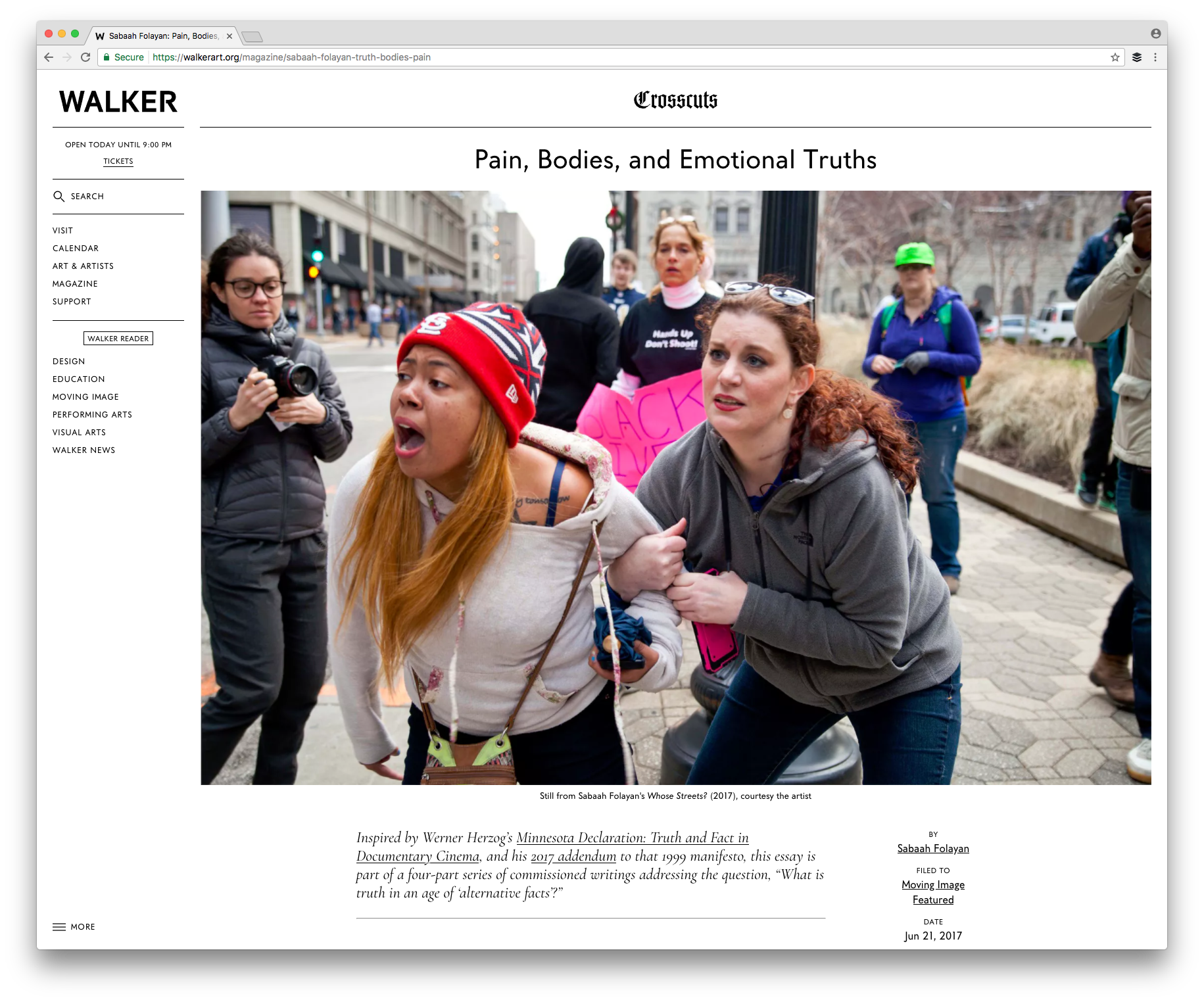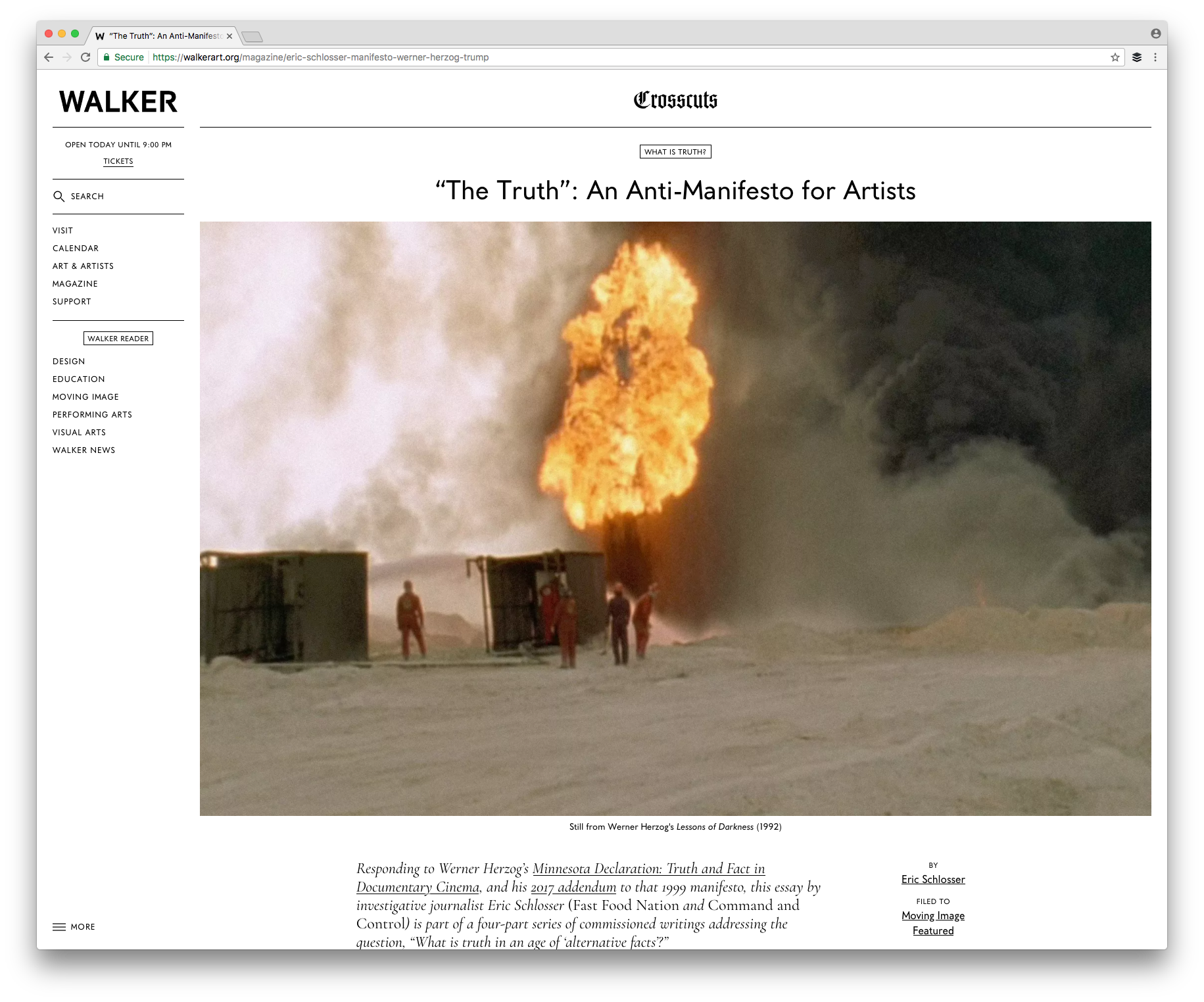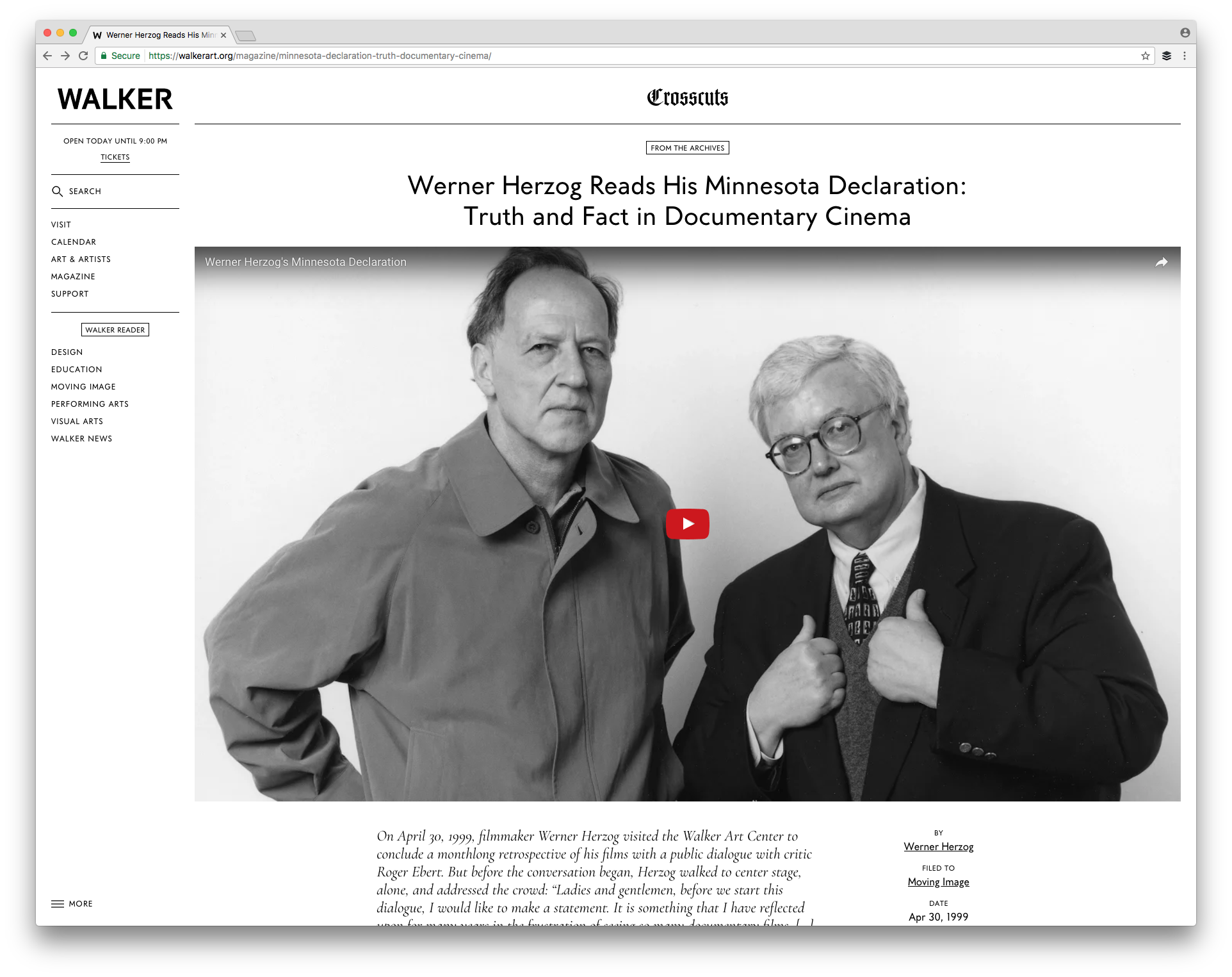To commemorate the launch of the redesigned Walker Art Center homepage in June 2017, I invited filmmaker Werner Herzog the titular question of this series. His response: a Trump-era addendum to his famed "Minnesota Declaration: Truth and Fact in Documentary Cinema," the manifesto on cinema verité he delivered 18 years prior on the Walker stage. To complement his new thinking, I commissioned a range of thinkers to write essays to consider ways of knowing "truth."
Ben Davis: "Beyond the Imaginary Politics of Objective Facts"
"Politics is the work of inspiring people, of connecting with their emotions as well as their minds, and making them believe in a vision worth fighting for. No matter what facts you have on your side, you cannot win unless you mobilize people around them." The art critic and author of 9.9 Theses on Art and Class weighs in on truthiness, politics, and "bushlips."
Sabaah Folayan: "Pain, Bodies, and Emotional Truths"
"The way out of the information spiral of 'alternative facts,' 'fake news' and the terrifying reality of our time, is to start paying attention, not just to the experiences of others but to our own psychological and emotional states." So writes the creator of the documentary Whose Streets?
RaMell Ross: "Goodbye, Pluto: An Elegy on Loss, Memory, and Photography"
"Active looking and conscious making are both radical acts. They insist that truth is an inquiry and pursuit, a movement through subjectivity towards creation," writes RaMell Ross, the Alabama-born, Rhode Island–based photographer, in an elegy on race, memory, photography, and his late mother, Gisele.
Eric Schlosser: "The Truth: An Anti-Manifesto for Artists"
Artistic manifestos, including Werner Herzog's Minnesota Declaration, "contain varying proportions of hot air and bullshit," writes journalist Eric Schlosser, who notes that "stylistic choices of artists pale in importance beside the lies and deliberate misinformation being spread every single day for power, control, and profit." The author of Fast Food Nation and Command and Control issues a manifesto of his own, offering a call for artists to act in the age of Trump.
Werner Herzog: "Werner Herzog Makes Trump-Era Addition to His Minnesota Declaration"
In this update to his 1999 manifesto in which he explained his notion of "ecstatic truth," Herzog didn't reference Donald Trump at all, but instead invoked André Gide, Michelangelo, and Shakespeare.
View the "What Is Truth?" series—and the 1999 Werner Herzog speech that inspired it—at the Walker Reader.
